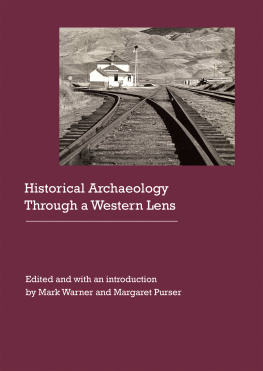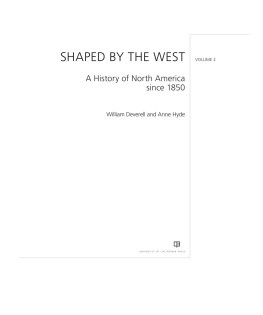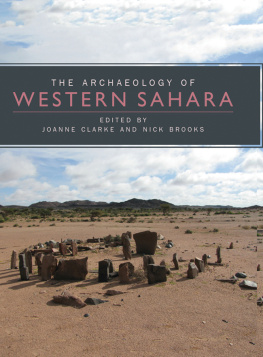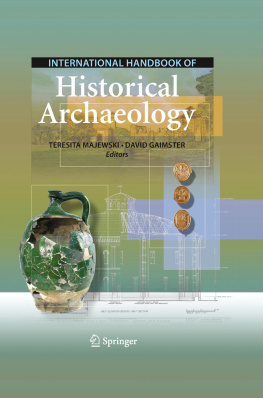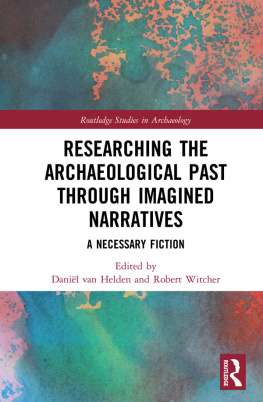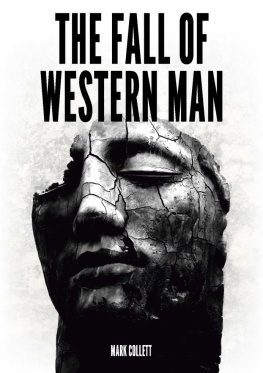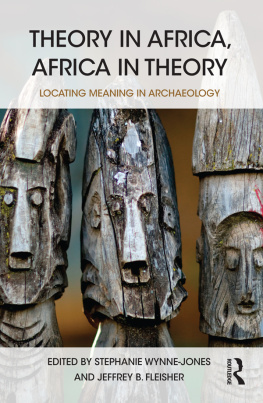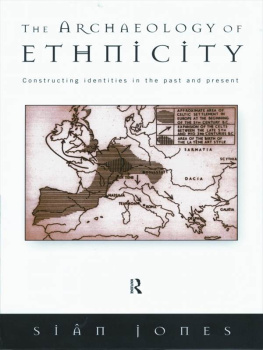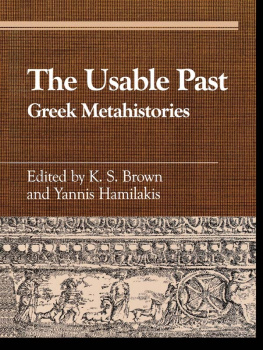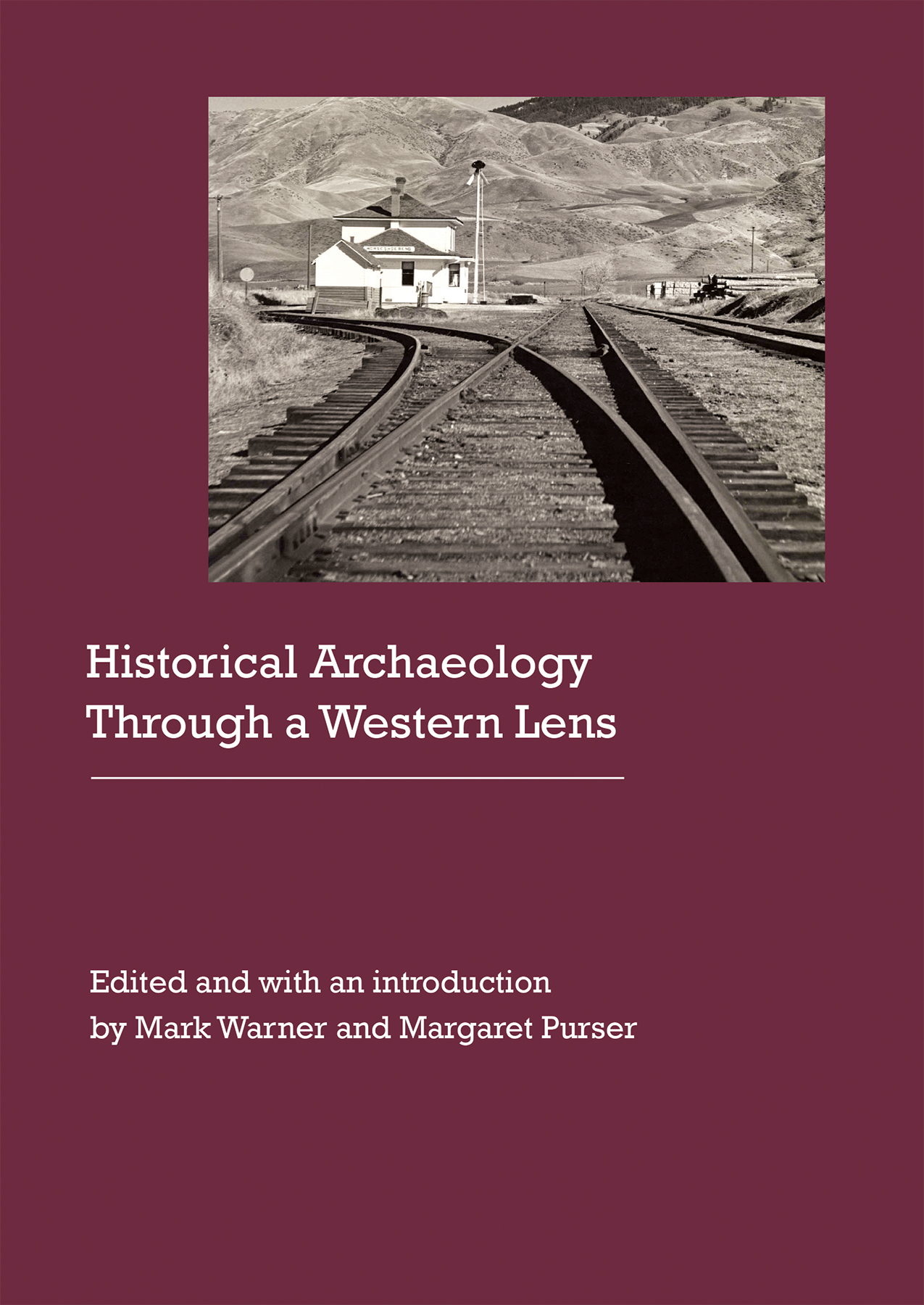
Warner and Purser have assembled a significant collection of archaeological essays that together speak powerfully to the ability of historical archaeology to contribute to the history of the U.S. Westand for the historical archaeology of the U.S. West to contribute to archaeology writ large.
Barbara L. Voss, associate professor of anthropology at Stanford University and coeditor of The Archaeology of Chinese Immigrant and Chinese American Communities
Well-written and broadly scoped, Warner and Purser have produced a compelling volume that presents excellent scholarship undertaken recently about the American West.... Keep it close at handthe volume promises to be a much-reached-for resource on every archaeologists bookshelf.
Carolyn L. White, associate professor and chair of the Department of Anthropology and Mamie Kleberg Chair in Historic Preservation at the University of Nevada, Reno
Historical Archaeology Through a Western Lens
Historical Archaeology of the American West
Series Editors
Annalies Corbin
Rebecca Allen
Historical Archaeology Through a Western Lens
Edited and with an introduction by Mark Warner and Margaret Purser
University of Nebraska Press and the Society for Historical Archaeology
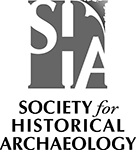
2017 by the Society of Historical Archaeology
Cover designed by University of Nebraska Press; cover image Horseshoe Bend. Robert E. Higgins Collection. University of Idaho Library, special Collections and Archives.
All rights reserved
Library of Congress Cataloging-in-Publication Data
Names: Warner, Mark S., editor of compilation. | Purser, Margaret Sermons, editor of compilation.
Title: Historical archaeology through a Western lens / edited and with an introduction by Mark Warner and Margaret Purser.
Description: Lincoln: University of Nebraska Press and the Society for Historical Archaeology, 2017. | Series: Historical archaeology of the American West | Includes bibliographical references and index.
Identifiers: LCCN 2016034815 (print)
LCCN 2017007852 (ebook)
ISBN 9780803277281 (hardback: alkaline paper)
ISBN 9781496200358 (epub)
ISBN 9781496200365 (mobi)
ISBN 9781496200372 ( pdf)
Subjects: LCSH : Archaeology and historyWest (U.S.) | Historic sitesWest (U.S.) | Excavations (Archaeology)West (U.S.) | ArchaeologistsWest (U.S.) | RegionalismUnited StatesHistory. | Social archaeologyWest (U.S.) | EthnoarchaeologyWest (U.S.) | ArchaeologyUnited StatesPhilosophy. | West (U.S.)Antiquities. | West (U.S.)History, Local. | BISAC : SOCIAL SCIENCE / Anthropology / Cultural. | SOCIAL SCIENCE / Archaeology.
Classification: LCC F 590.7 . H 57 2017 (print) | LCC F 590.7 (ebook) | DDC 978dc23
LC record available at https://lccn.loc.gov/2016034815
The publisher does not have any control over and does not assume any responsibility for author or third-party websites or their content.
Contents
Margaret Purser and Mark Warner
Margaret Purser
James P. Delgado
Robert J. Cromwell
Mark Walker
Joe Watkins
Kelly J. Dixon and Carrie Smith
Douglas E. Ross
Bonnie J. Clark
minette church
Timothy James Scarlett
Mark Warner
Matthew Johnson
The idea germinated over a cup of coffee at the 2001 Society for American Archaeology ( SAA) conference in New Orleans. The two of us were lamenting the lack of any sort of edited volume focused specifically on historical archaeology in the West. Our cup of coffee led to the two of us organizing a couple of thematic sessions at the Society of Historical Archaeology ( SHA) meeting in 2004 and the Society for American Archaeology meeting in 2005sessions that ultimately resulted in this book.
In some respects the volume treads new ground, but much of it builds on the work of a handful of people who have been excavating historical sites in the West for the past fifty years or so. What we have assembled stands on the intellectual shoulders of these founders of historical archaeology in the West, and heartfelt collective thanks go to Louis Caywood, Rick Sprague, Bunny Fontana, Roberta Greenwood, Donald Hardesty, Priscilla Wegars, and Jim Ayers.
Both of us are lucky to work in academic programs where our students and colleagues have actively encouraged, supported, and participated in the research projects large and small that have driven our own interest in and commitment to historical archaeologies in, of, and from the American West. For their collective patience, enthusiasm, and willingness to listen to endless musings on the topic, we are very grateful.
We also obviously thank the contributors to this volume, both for the quality of material submitted and for their patience with the stop-and-start nature of the project. A question now arising is who will take the lead on the next volume? There has been such an explosion of work in the West over the past decade that it is already time to start planning for more.
Our thanks go to the anonymous reviewers for their astute commentary on the first draft; at the least, we owe them a drink at some future SHA meeting. We are also extremely grateful for the John Calhoun Smith Fund at the University of Idaho for subsidizing the indexing. Finally, we owe appreciation to Rebecca Allen and Annalies Corbin of SHA and Matthew Bokovoy and Heather Stauffer of the University of Nebraska Press for the advocacy, critical eyes, and gentle nudges they applied to help us see this book to completion.
Historical Archaeology Through a Western Lens
Margaret Purser and Mark Warner
They are the kind of taglines that flash sporadically across any evening network newsfeed: fracking boomtowns in North Dakota scramble to meet the basic infrastructure needs of a massive, transient, and economically unstable labor force. Arizona politicians vote to remove all references to Mexican American history from the state school curriculum. Massive wildfires ravage expanding suburban settlement areas in Colorado. A Seattle-based corporate CEO with a background in oil exploration and a track record in protecting public lands close to urban space becomes secretary of the interior.
These things could be happening anywhere in the country. Yet as these stories and their images grab the momentary spotlight, the evocation of place imbedded in the very names themselves is inescapable. Somehow these become western stories. The imagined and iconic American West is still very much a part of the American scene and the American psyche. Three decades ago now, we learned from New Western historians like Patricia Nelson Limerick, Richard White, and William Robbins about the futility of trying to parse myth from truth in any finite sense where the West is concerned. This perception of the West and its storied past, especially by those outside the region, has itself become a prime mover, persistently shaping peoples actions both in the region and toward the region. But as these same historians have also pointed out, the very real power of this ultimately false perception only sharpens the need for nuanced, articulate narratives about the region and, most especially, for clearly drawn analyses that connect its many diverse pasts to the present moment.
Historical archaeologists working in the American West work at exactly these paired nexus points between past and present, and between myth and reality. We also increasingly work with both descendant communities and a general public holding very definite expectations regarding what stories will be told about any particular western past and how those stories should be used in the present. In many ways we share this research environment with colleagues elsewhere in the United States and the rest of the world: certainly no archaeologist working in colonial New England or the plantation South would fail to recognize this scenario. The origins of American regionalism, and how it has played out in evolving American identities, is an intellectual thread woven into the basic fabric of our discipline, beginning with the works of people like James Deetz, Charles Fairbanks, John Cotter, and Bernard Fontana.

